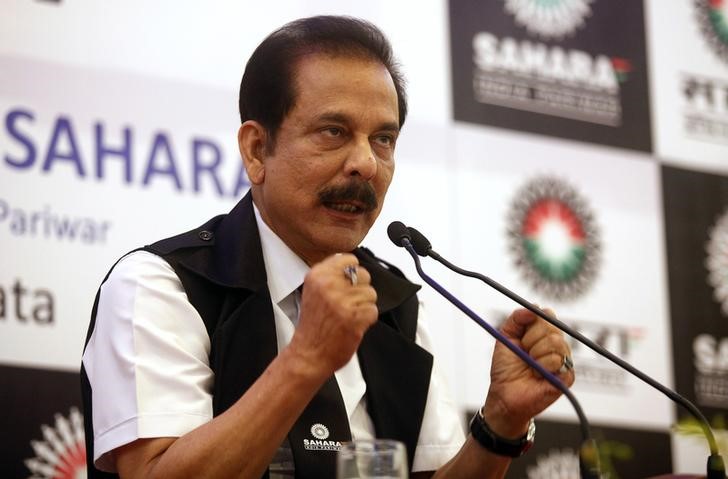By Dan Levine and Emily Flitter
SAN FRANCISCO/NEW YORK (Reuters) - Federal authorities in San Francisco are probing U.S.-based Mirach Capital Group, two sources familiar with the situation told Reuters, amid allegations that the group gave a forged bank letter to Indian conglomerate Sahara as part of financing negotiations.
Sahara had sought to borrow more than $1 billion from Mirach to help bail its chairman, Subrata Roy, out of jail in New Delhi. Roy was jailed last year for contempt charges for failing to comply with a court order to repay investors in a bond transaction that was ruled to be illegal.
His bail was set at $1.6 billion, the highest ever in India, and his company sought to raise money to pay for it. The Indian conglomerate was willing to use hotels it owns, including New York's Plaza, as collateral.
The Indian company negotiated for funds with Mirach, a group set up by former broker Saransh Sharma, who lives in Northern California. Mirach gave a letter to Sahara that purported to prove the U.S. group had the funds in an account at Bank of Americ (NYSE:BAC)a to lend to the Indian company, but after a Reuters report earlier this month raised questions about the authenticity of the document, Sahara said it was a forgery.
Sahara said it would initiate civil and criminal legal action against Mirach in India and the United States.
One source said the Federal Bureau of Investigation's office in San Francisco is currently investigating Sharma, and another said the probe involved the Sahara allegations of a bank letter forgery. FBI spokesman Gregory Wuthrich in San Francisco said he could not confirm or deny an investigation.
A lawyer for Sharma said that Sharma has not been contacted by the FBI, and demanded that Reuters refrain from publishing a story. "We have no reason to believe that your source is anything more than a mere propagandist for some group that is adverse to Mr. Sharma and/or Mirach," Sharma's lawyer wrote.
A Bank of America representative declined to comment on the investigation.

Roy's bail reflects the scale of the illegal bond transactions. The court has said investors need to be repaid as much as $7 billion including accrued interest.